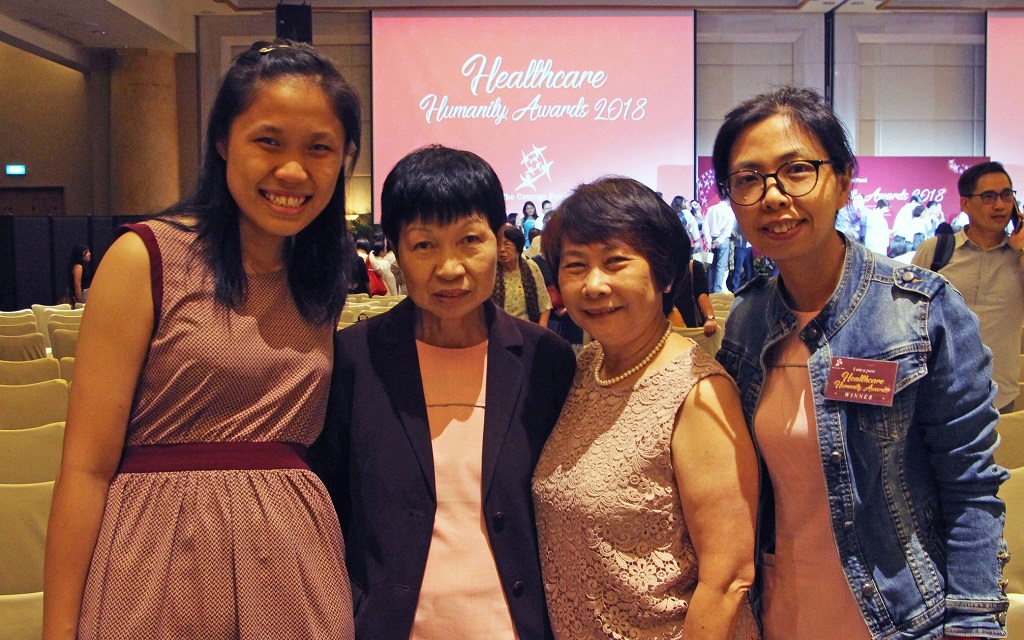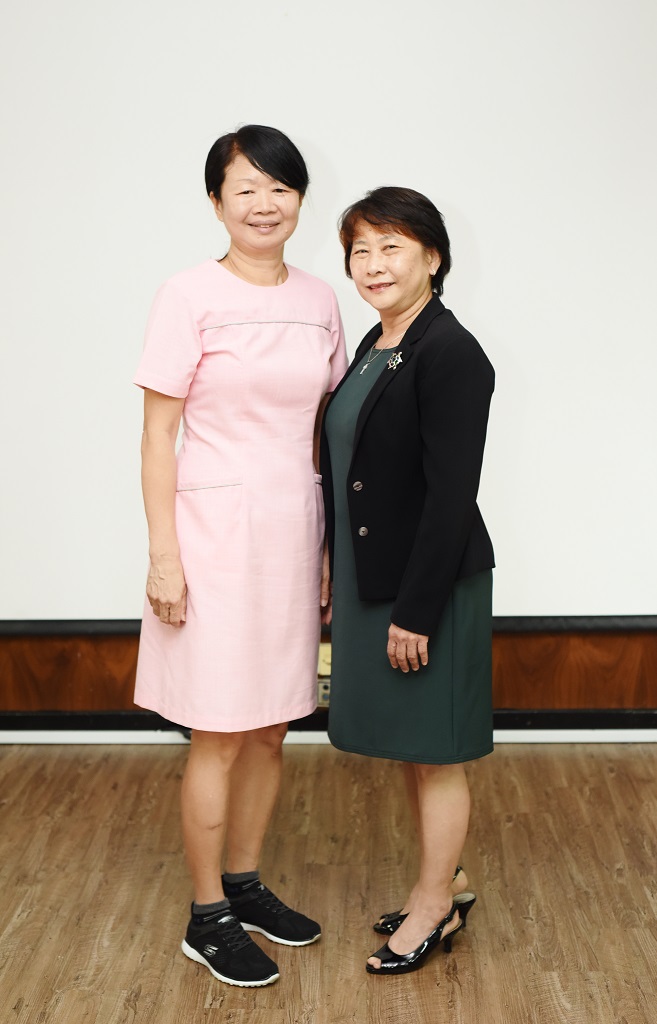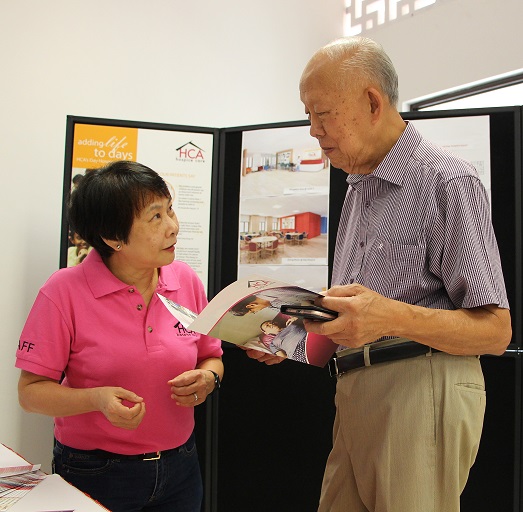
Close


The troubleshooter and the mentor – these are just some of the many roles Angela Tan, HCA’s Director of Nursing, plays. Often seen striding rapidly and purposefully around the office, she barely has any free moments to spare in a typical work day. “I have over 200 emails that I haven’t read!” she says with a laugh.
With 43 years of nursing experience under her belt, Angela puts her knowledge to good use in numerous areas, including service recovery, training and orientation, and performance review of her staff. But through the decades, from a young nursing student to the veteran she is now, one thing has remained constant: the ability to empathise and put herself in the shoes of others.

A familiar face to everyone, Angela (far left) is actively involved in many of HCA’s events.
Training new nurses is a key aspect of Angela’s job scope, one that is vital to extending the reach of HCA’s work to more patients and families. She takes a systematic approach to planning the training programme, by segmenting it into different areas of specialisation.

Angela is a trusted mentor to the nurses. She is pictured here with Assistant Nurse Manager Tan Joo Eng, who recently won the Nurses’ Merit Award 2018.
“I know my staff’s expertise, so I divide the training areas and allocate them to respective staff who are specialised in that particular area,” Angela explains. “These include symptom management, common palliative care emergencies and communication in home hospice care.”
The burden of impending death on loved ones can be overwhelmingly heavy. Apart from providing clinical care, HCA’s nurses also play a key role in supporting the psychosocial wellbeing of patients and their families. “HCA has a Care of Dying Pathways (CDP) protocol, which our nurses are trained in, to help to prepare family members for death,” Angela says.
Apart from ensuring that the needs of patients and their families are attended to, Angela also checks in regularly on her nurses to make sure they are coping with the workload. “We review the caseload of each centre and ask if the nurses are coping, especially when there is an unusually high number of cases,” she explains.
“Sometimes we just have to eat humblepie,” Angela says with a smile.
She is referring to the negative feedback that patients and their families sometimes give in response to the services they have received. “I will investigate if we receive negative feedback and give the families a call to find out more about the situation,” she explains. “A lot of times, it is about communication and managing expectations.”
The prospect of meeting with irate families may seem unpleasant, but Angela takes it in her stride. “We often meet them face to face to hear them out and apologise for any shortcomings,” she says.
Every nurse has his or her personal motivations when it comes to their career choices. For Angela, it began a long time ago, extending all the way to her childhood. “When I was young, I had a little brother who was sick and had to be hospitalised,” she shares. “I felt very sad and I cried whenever he cried.”
“I just wanted to make him feel better and I was really inspired by the nurses who cared for him.”
This early experience with illness sparked her decision to pursue nursing as a career. “Nursing was my first choice and I got accepted!” she beams.

Angela talks to a member of the public about HCA’s services at the KWSH Community Care Day in March 2018.
Having worked in palliative care for the last eight years, Angela relates that she has learnt a lot. “It is meaningful to be in palliative care and to help people who are at a loss,” she says. “We help to care for their loved ones and be their advocate.”
The years of experience with life and death have afforded her much wisdom. “It is part and parcel of life and we are helping to prepare them for their final days in life,” Angela shares.
“When you have prepared well, the farewell will be good.”